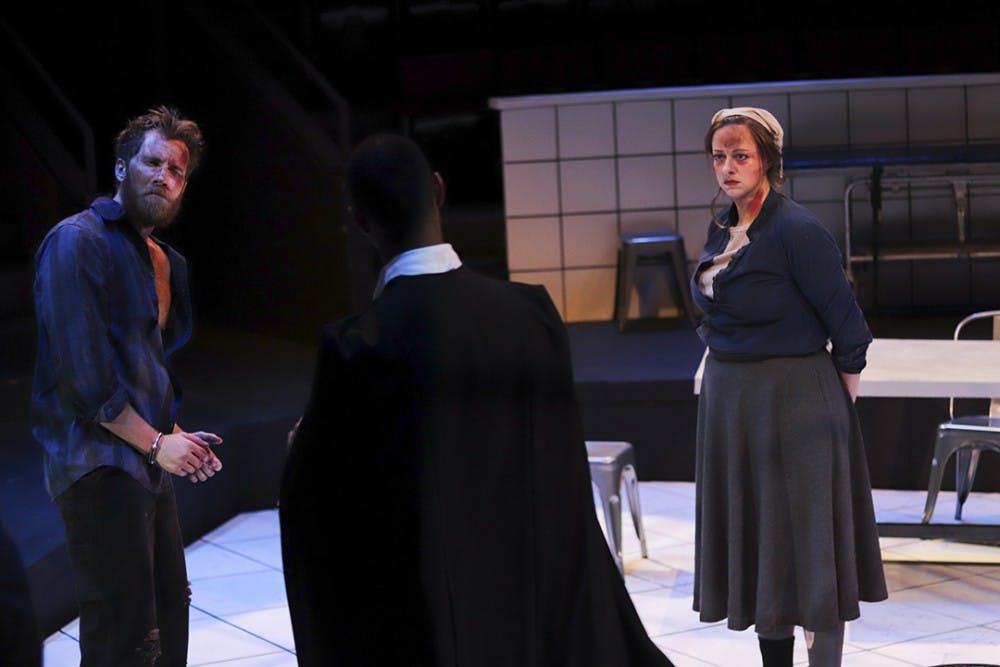It’s almost unbelievable how applicable Arthur Miller’s “The Crucible” is to America today. And it’s almost comical that a screenplay written more than fifty years ago was intentionally chosen as USC’s first main stage production of 2018 on the basis that it reflects the state of our current society, according to director Robert Richmond.
But these things are neither entirely unbelievable nor entirely comical, because I think that Richmond is right. USC’s presentation of “The Crucible” — a story which uses the phenomenon of the Salem Witch Trials to parallel societal issues regarding accusations and public deceit — pulls the plot into the 21st century, but leaves many historical elements intact; it is, in its essence, a show that reveals to us the cyclical, dangerous patterns of history.
“The Crucible” centers on a community wrought with paranoia as people are accused of practicing witchcraft. With no proof, every person’s accusation is taken as truth, and the accused are left with a choice: confess and live, or refuse to confess and be hanged.
Richmond’s adaptation is characterized by organized chaos. The circular space of Longstreet Theatre is conducive to confusion — albeit productive, purposeful confusion; it allows for actors to emerge on balconies seemingly out of nowhere, to fill the walls with indiscernible whispers and to make unprecedented appearances among the audience. Richmond and the cast refuse to let us be casual observers; we are surrounded by this inescapable, panic-inducing hysteria playing out all around us.
Though “The Crucible” is not a musical by any means, the production’s deliberate music selection was incorporated with expert strategy. It was just enough to make the audience uneasy and timed to either set the tone for the opening of a scene, or to seal in the emotions left hanging at the end of one.
During such scenes, those feelings are pushed into the air forcibly, roughly, by the actors. The characters they play — while not exactly likable — are compelling. I was struck by the strength of the key players, and further, the physical manifestation of this strength by the actors. Women fought back verbally, argued their points and used their wits to make decisions. It’s especially apparent in Abigail Williams (Kimberly Braun), who is among the first of those accused of witchcraft and also the first to point fingers. Williams is soft when she wants to be but intense and profusely unwavering in her decisions when she needs to be.
This intensity was common among the cast. The actors put their entire bodies into their roles. They shook and spat and convulsed and crashed to the stage in sudden fits of fury or exhaustion. It was not easy to take in, but it kept us watching regardless.
I was especially impressed with the portrayal of Mary Warren by Kimberly Gaughan, who carried herself gently but spoke bluntly and in an unconventional manner that set her apart from the other women. She is perhaps the only character worth rooting for, which is a necessity in such a dense show.
Perhaps the eeriest element is the common ground the audience can find with the characters and with the story. Finger-pointing and blame and trial after trial after trial. It is not simply a work of entertainment. USC's production of "The Crucible" — the lights, the music, the stage — is a chaotic reflection of human propensity to accuse and to let fear rule loyalties and decisions.

